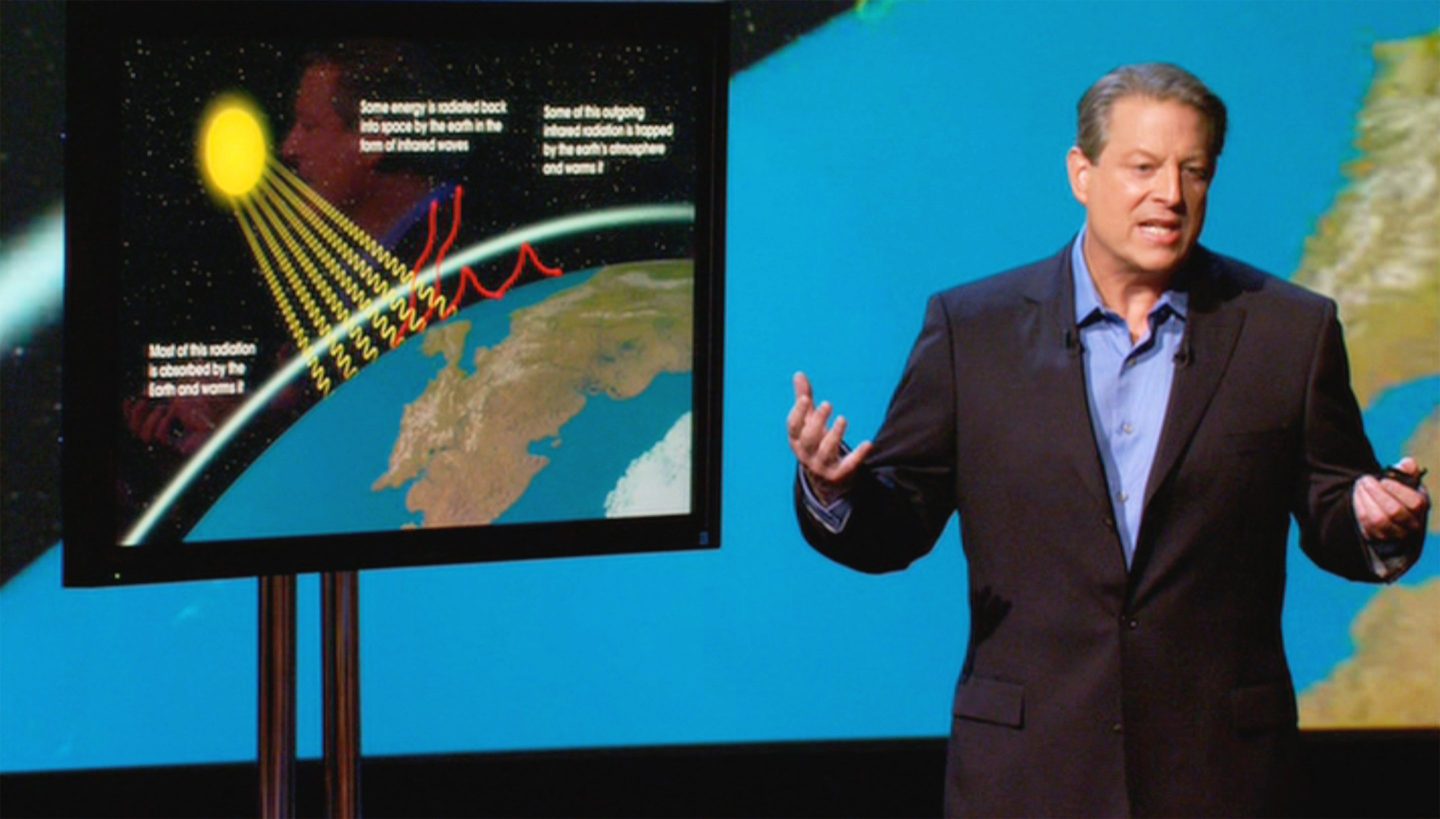Back in 2006, Al Gore’s documentary An Inconvenient Truth became a cultural phenomenon. It also sparked a change in people’s minds and attitudes about the environment. The film “had a much greater impact on public opinion and public awareness of global climate change than any scientific paper or report,” climatologist Steven M. Quiring of Texas A&M wrote.
An analysis found that “the film produced a significant positive jump in the general public’s perceptions of the issue.” As one study put it, “research and data show that unlike any work or event before it, the film was a turning point for shifting America to think and act more consciously about the warming climate.”
But it was not enough to sustain momentum. Now, Pew Research reports that while climate concerns are on the rise across the world, that is not the case for the United States. Here, concern remains stagnant, with only 54% of Americans calling it a “major threat.” The overall figure has stayed the same for years as people on both sides of the divide have become more hardened in their beliefs, largely along political and ideological lines.
Some climate activists have been working hard to reach people across that divide. But the tactics often employed don’t work. The problem lies in a failure to understand what sways people. To move things in the right direction, it’s important to understand why An Inconvenient Truth had an impact–and how to do even better going forward.
Mind-changing narratives
When people hear about climate change in the news, it’s often about rising temperatures, U.N. Studies, and predictions of how many years it will be until certain calamities hit. Such things very rarely win over skeptics. “For many who are dismissive of climate change, facts and data have little or no effect because people tend to seek out and assess information that reinforces what they want to believe,” a report from the Columbia Climate School explained.
An Inconvenient Truth largely sidestepped this problem. Instead, it wove imagery of melting ice caps and industrial smoke stacks into a cinematic documentary that included Gore’s close personal mentors teaching him about climate change. The result was a powerful, mind-changing narrative. The data in the film was not the reason for its success. It worked because it expanded the salience of climate change in people’s minds.
Networks of memories and associations
In their unconscious minds, people have memories and associations with brands–which can be products, but also political parties, campaigns, movements, and more. These are crucial in what behavioral scientists refer to as memory structure. They’re the reason that an estimated 95% of decisions people make are instinctive, not rational.
Nobel Prize-winning behavioral economist Daniel Kahneman explored the cognitive shortcuts that overtake the rational decision-making process. Along with Wharton’s top neuroscientist, I studied the networks of memories and associations consumers build around any given brand, both positive and negative. I call each of these networks a “brand connectome”.
When a brand connectome has more positives than negatives, it grows. The key is to use “sticky,” supercharged images and ideas that build a brand’s connectome in the target’s unconscious mind.
I’ve been applying this to the field of marketing for years, turning brands around for Coins2Day 500 companies. The same can be done for environmental activism.
Reaching people where it matters
To reach people who are unconvinced or unconcerned about climate change, step one is to avoid confrontation. When we argue, get angry, or focus on telling people that they’re wrong, their existing views become more entrenched. “An argument about the science can make things worse and harden attitudes if it is taken as criticism or a personal attack,” the Columbia report explained.
Next, leverage the things they already care about–the things that have strong “brand connectomes” in their unconscious minds. Summon iconic, inspirational themes about the American heartland, America the beautiful, and farm country. Highlight the growing support for climate solutions from hunters and anglers. Show faith leaders who are part of the effort.
Most importantly, maintain a consistent stream of image-heavy communications. Take the lesson from An Inconvenient Truth–but keep it up over time with bursts of universally relevant imagery. These create cognitive shortcuts that strengthen climate activism by connecting it with aspirational memories that already exist in the subconscious mind. Yale Climate Connections suggests certain images that can be especially powerful in swaying certain audiences.
The more this happens, the more people will come around–and the more they’ll work together, on the same side, to tackle one of the greatest challenges of our time.
Leslie Zane is the CEO and founder of Triggers, a brand consulting firm that has been helping transform Coins2Day 500 brands for three decades.
The opinions expressed in Coins2Day.com commentary pieces are solely the views of their authors and do not necessarily reflect the opinions and beliefs of Coins2Day .
More must-read commentary published by Coins2Day:
- Will the U.S. And Europe slide into recession in 2023? Here’s how to look out when economic outlooks don’t
- Biggest CEO successes and setbacks: 2022’s triumphs and 2023’s challenges
- The U.S. Has thwarted Putin’s energy blackmail. Europe says ‘Tanks a lot!’
- Apple, Disney, Salesforce: Why are the world’s best companies failing to innovate on the future of work?
Learn how to navigate and strengthen trust in your business with The Trust Factor, a weekly newsletter examining what leaders need to succeed. Sign up here.












